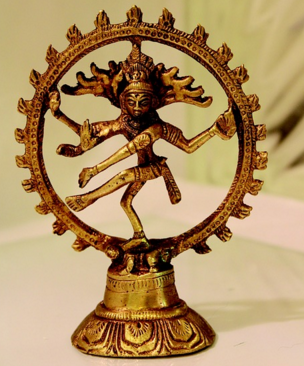Throughout the tapestry of human belief, the concept of reincarnation has captivated countless hearts and minds. The idea that the soul is immortal and undergoes a series of births and deaths is an alluring proposition that resonates with many spiritual traditions. Within this context, it is worthwhile to explore the Bahá’í teachings on reincarnation, examining the intricate beliefs and perspectives that differentiate Bahá’í thought from those philosophies that endorse reincarnation as a core tenet.
At the outset, it is essential to clarify that Bahá’í teachings do not subscribe to the conventional notion of reincarnation. Instead, the religion asserts a fundamentally different understanding of the soul’s journey after physical death. The Bahá’í Faith posits that human life consists of a continuous progression towards spiritual maturity, with the physical realm serving merely as a transit point within a broader divine plan.
The Bahá’í approach to understanding life after death is bewildering in its simplicity yet profound in its implications. According to Bahá’í scripture, the soul is an emanation from God, existing in a state of eternal progression. Upon the death of the physical body, the soul transitions into a spiritual existence, moving towards its ultimate purpose of closeness to God. This notion provides a significant divergence from the idea of reincarnation; rather than being reborn into the material world in various forms, the Bahá’í believes that the soul ascends to higher spiritual realms.
To delve deeper into the Bahá’í perspective, one must consider the purpose of life as presented in the faith’s teachings. The fundamental objective of human existence is to cultivate virtues and attributes that bring one closer to God, facilitating a transformative experience. The focus is not on the unending cycles of material rebirth but on the relationship between the human soul and the divine. This emphasizes the importance of living a life grounded in moral and spiritual development rather than merely reliving various incarnations to achieve enlightenment.
One of the captivating facets of the Bahá’í worldview is the concept of progressive revelation. The Faith posits that God has sent a succession of Manifestations—prophets and divine educators—throughout history to guide humanity toward its highest potential. Figures such as Moses, Jesus Christ, Muhammad, and Bahá’u’lláh embody this concept, each imparting teachings pertinent to their respective epochs. This divine pedagogy serves as the unifying force for humanity, encouraging both personal growth and collective advancement without necessitating a likelihood of reincarnation to achieve higher awareness.
The Bahá’í writings also articulate the significance of individual agency in one’s spiritual journey. Every person is endowed with free will to choose their path, allowing for a multitude of experiences that shape the character of the soul. In this sense, it becomes evident that the focus shifts from the recurring cycles of rebirth to the power of choice and the personal responsibility to develop virtues such as love, compassion, and justice during a single lifetime. The essence of growth lies not in multiple lifetimes but within the profound depth of the present moment.
However, it is essential to acknowledge the deep-seated fascination surrounding reincarnation that permeates various cultures and religions. The allure of past lives evokes a myriad of questions: Who were we before? What lessons did we learn in previous incarnations? For many, the notion of reincarnation can provide solace in the face of life’s ephemeral nature. Yet, this pursuit of knowledge can also be a distraction from the ultimate purpose of life as defined by the Bahá’í Faith, which calls for conscious living within the current lifetime.
In considering the Bahá’í response to the questions surrounding reincarnation, one must also contemplate the significance of spiritual accountability. The Bahá’í Teachings underscore the necessity for individuals to take ownership of their actions and spiritual development. If reincarnation served as a mechanism for learning from past mistakes, one might be tempted to postpone or ignore the pressing need for personal and moral accountability in the present life. This leads to a possible devaluation of the monumental choices we make daily, undermining the urgency and importance of our actions.
Moreover, the Bahá’í Faith emphasizes the interconnectedness of humanity and the shared destiny of all people. The belief in reincarnation may inadvertently foster a sense of separation and individualism, highlighting personal journeys over collective progress. In contrast, Bahá’í teachings advocate for unity and communal advancement, affirming the importance of serving one another in this lifetime to foster a thriving global society.
In conclusion, while the concept of reincarnation continues to stir intrigue and contemplation across various belief systems, the Bahá’í Faith offers an alternative understanding of existence beyond physical life. Through the lens of spiritual progression, individual agency, and the importance of the present moment, the Bahá’í teachings encourage followers to focus on cultivating virtues and fostering a deeper connection with the divine. This perspective not only addresses the enchantment surrounding reincarnation but also invites reflection on the profound nature of our current existence and the ultimate journey of the soul. In essence, the Bahá’í viewpoint illuminates a path filled with opportunities for growth and unity, allowing for a rich tapestry of life experiences in pursuit of love and truth.
